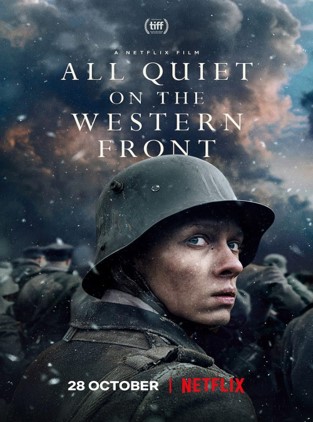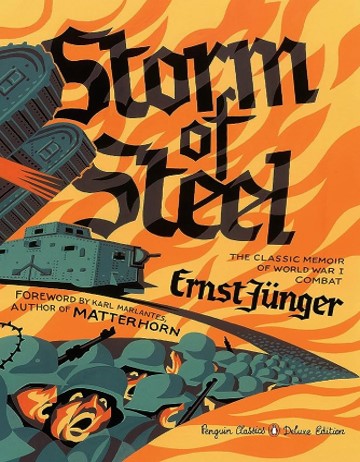'This book is to be neither an accusation nor a confession…It will try simply to tell of a generation of men who even though they may have escaped shells, were destroyed by the war.”
-All Quiet on the Western Front, Erich Maria Remarque
This is the first sentence of German author Remarque's All Quiet on the Western Front. Like this line, war archival literature includes records of different people who experienced war. Let’s learn the significance of such war archival literature in war history and literature, and look at two famous works of archival literature.
What is Archival Literature?
First of all, archival literature is a writing method that faithfully describes and records what happened in the real world, rather than being a fiction created by the author. Reading archival literature that faithfully recreates the reality of war gives readers a tremendous sense of immersion, almost as if they were standing in the middle of the battlefield themselves. This kind of war archival literature has great significance not only in literature, but also in history. The history recorded by archival literature records many things that the ‘official’ top-down history has missed. The top-down histories that appear in encyclopedias and textbooks deal only with the "war" itself. Its main content is who won, how many died, what tactics and weapons were used, etc. On the other hand, archival literature is written by a wide variety of authors. Archival literature includes the diverse voices of each writer and their experiences. Their writings bring to the reader the raw emotions of those who experienced the war that can often not been felt in existing history books. Readers discover such diverse emotions as fear, hope, and fantasy of those who experienced such tragedies of war, becoming completely immersed in their stories.
World War I from a Different Perspective: Remarque & Junger
It is very interesting to compare Remarque and Junger. Because, while both share a similarity in that they both participated in World War I as German low-ranking soldiers, the voices that the two writers convey to their readers about the war are quite different. While Remarque represents the cruelty of war and anti-war ideology in his work, Junger celebrates the friendship and heroic courage of men blooming amidst the horrors of war. Looking at their lives, Remarque was so disgusted of war that he defected to the U.S. just before it began. On the other hand, Junger served in World War I, even winning ‘Pour Le Mérite’[1]. He later participated in World War II as a captain in the Reichswehr[2] and distinguished himself in war yet again. When we study history, this can help to remind us of how fragmentary the idea of judging all individuals in the same framework with national ideology is.
Erich Maria Remarque, All Quiet on the Western Front

Remarque's masterpiece, All Quiet on the Western Front, has been made into a movie three times. Remarque wrote All Quiet on the Western Front based on his own experiences in World War I, and established Paul Bäumer as his alter ego and the protagonist of the story. His vivid descriptions of his voluntary enlistment, his training period, and the horrific trench warfare make this work a masterpiece of archival literature. The scenes in which he talks with his comrades about the purpose of the war and their future lives while on the battlefield are intended to throw that question to the reader as well.
After the death of most of his classmates and Katczinsky[3], Paul dies in the war with a peaceful look on his face, having lost the meaning of his life. Unlike the novel, which shows forms of vivid dialogue and diary entries through German first-person slang throughout, Paul's death leaves only the sentence "All Quiet on the Western Front.”
‘All Quiet.’ This empty command record emphasizes the tragedy of the countless individuals who were killed in the war, while at the same time criticizing the high-ranking officials who sacrificed so many soldiers from the safety of the rear.
Ernst Junger, Storm of Steel

On the other hand, the record of Junger, who was active and felt proud comradeship of his military service in World War I, differs considerably from that of Remarque. His work, while also vividly describes the cruelty of war, celebrates the budding friendship and unbreakable humanity from the Storm of Steel, so-called ‘heroic realism.’ His ideology is best expressed in the following quotes: " These drink-offerings on the morrow of well-fought fights count among an old soldier’s happiest memories... For those to come— a full glass, though death and the devil grin there, as long as the wine was good…It was here, among the spirits of the undaunted dead, that the will to conquer was concentrated and made visible in the features of each weather-beaten face...” Looking at these, we can see how his novels also describe the stifling moments of nighttime reconnaissance in detail, providing the reader with a sense of stifling tension by bringing the battlefield experience more vividly than any other writer.
Remarque and Junger's two masterpieces were among the three bestsellers of the German Weimar Republic along with Hitler's Mein Kampf. Although they both served in the German army and participated in the same war, Remarque and Junger's works are completely different, and their records show human emotion and the sublime chivalry that top-down history can never address. Many history books describe World War I in somewhat rigid terms, such as totalized war, total assembly of 20th-century technology, and so on. If you are interested in the stories of individuals who participated in and witnessed the tragedy firsthand, rather than this hard and consequentialist history, why don’t you read Remarque and Junger's works?
[1] ‘Pour Le Mérite’ is the highest medal of the Kingdom of Prussia.
[2] Reichswehr means the name of the German military from 1871-1945.
[3] Katczinsky is an old soldier in the same company as Paul. He acts as a practical support for Paul and his classmates, teaching them survival skills, situational awareness, etc.

